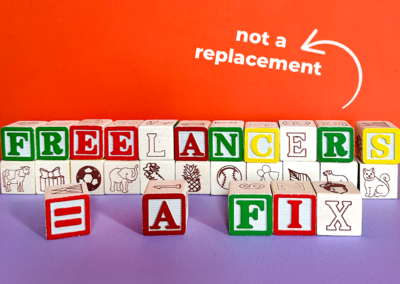It’s the dawning of the age of autonomy. And actually not altogether unlike the Dawning of the Age of Aquarius. Interestingly enough, although the 60’s have long been referred to as the Age of Aquarius for their pushback against traditional norms and stark generational divides, according to astrologers, sometime between December 2020 and March 2021 is the actual Age of Aquarius.
Why is this important? The Age of Aquarius does signal a pushback against traditional norms and values, sure, but those can also be seen in other decades, such as the Roaring 20’s and those Swinging 60’s. What stands out about Aquarius is the inherent collectiveness in it all. People born under this sign have a natural, forward-thinking we v. me mentality. Since the constellation Aquarius was first discovered by a mathematician, let’s put this in the form of an equation:
cyclical rebellion against traditional, oppressive hierarchical structures +
moving from a focus on the individual to a more collective way of thinking =
the perfect recipe for big sweeping changes in our systems
When 4.2 million workers left the workforce in April, citing the desire to not go back to traditional or ways of working in an office, it’s clear that we are in a time of rebellion against traditional, oppressive hierarchical structures. When hospitality workers across the country demand better wages and working environments to the extent that restaurants are limiting their hours, and sometimes raising the wages of staff, it’s clear that we are moving to a more collective way of thinking. Workers in a variety of roles and industries are doing whatever they can, with the tools they have access to, to demand autonomy and ownership over their work and their lives.
Autonomy is defined as self-governance, from the early Greek, autonomia, or self-law. In Kantian philosophies, autonomy is acting in objective morality or in accordance with a moral duty, instead of being influenced by desires.
In our cultural reality, the truth is likely somewhere in the middle, with employees and workers longing for the Greek version, which would require employers, corporations, and leaders to follow the Kantian version. According to The Rosie Report:
- 100% of the people who responded want the option to work remotely,
- 52% want some kind of choose your own location policy, and
- 40% must have flexible hours.
Research by McKinsey, Robert Half, and Edelman found overwhelmingly that workers are looking for flexibility and that the option to work remotely, at least part of the time, is key to them staying at their jobs. If we weren’t sure this really meant anything, 4 million people leaving their jobs in April, in what is now being called The Great Resignation, affirms that it does.
The Rosie Report also found that only 37% feel that the organizations they work for/with are well-prepared to handle any of that. Employees and freelancers are looking for ways to have more autonomy in their work and don’t feel like the companies they work with are prepared to manage it.
In spite of this, there has been no shortage of CEO’s making statements lately about how antsy they are to get their employees back in the office and how employees dedicated to their work will want to be there. This is a prime moment for the future of work. How do we provide leaders with the tools they need to manage autonomous workers and shift the narrative around why autonomous work is desired by employees, as well as why it is good for our country – and their businesses?
Contrary to what we hear in general discourse, that the demand for better pay, better hours, and employee pushback is because Millennials are over-coddled and too-entitled, these are not unreasonable requests. They are just being made in a culture not prepared to meet them.
We’ve all heard the adage that things often have to crumble and burn to make room for something new and better. COVID made great strides in destroying the environment that wasn’t set up to handle our reasonable requests to have both control over and meaning in our work. Which means we are perfectly poised to examine these systems, and the ones being promoted to replace them, and “return to work” with a better understanding of what is possible, what is necessary, and what the collective needs.
Change is coming, and, as leaders, this is our time to really shine. Systems are shifting, and we need good and brave leadership that embraces the rebellion.
Editor’s Socials & Website – LaKay Cornell: Instagram, Twitter, LinkedIn, Website



